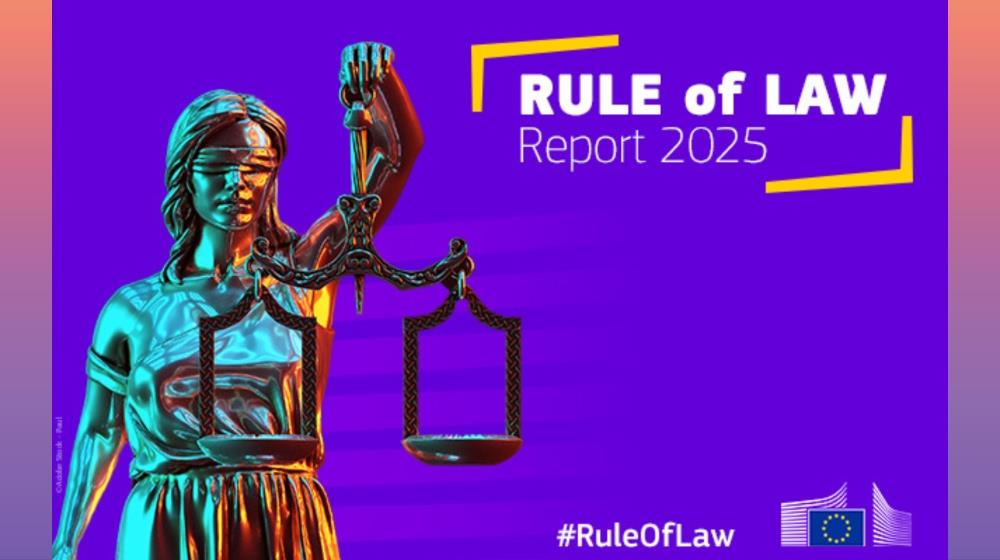Cyprus is making progress in reforming its justice system, with efforts to clarify the roles within the Law Office moving forward, the European Commission said in its sixth annual Rule of Law Report.
It did add, however, that "considering other developments that took place in the period of reference, in addition to recalling the relevant commitments made under the Recovery and Resilience Plan, it is recommended to Cyprus to further advance with the ongoing reform of the Law Office and the establishment of the Office of the Public Prosecutor General and establish an effective review of decisions not to prosecute or to discontinue proceedings, taking into account European standards on independence and autonomy of the prosecution."
The reform, it said, aims to distinguish more clearly between the advisory and prosecutorial functions of the Attorney General, maintaining the Attorney General’s role as legal advisor to the state while transferring prosecutorial powers to a newly established General Public Prosecutor.
In Cyprus, the report notes that the Attorney General has sought the Supreme Court’s opinion on the review of decisions not to prosecute or to discontinue proceedings; a step aimed at increasing judicial transparency.
Additionally, the judiciary has introduced a new process for judicial review of decisions made by the Supreme Council of the Judicature, aiming to enhance transparency and accountability. Despite some improvements, challenges remain—particularly low levels of digitisation and a not so fully functional integrated electronic case management system. Challenges regarding resources and infrastructure continue to affect the work of first instance judges.
Long proceedings and backlogs "remain a serious concern"
Τhe length of proceedings and backlogs "remain a serious concern", in particular for civil and commercial cases, despite some improvements. Businesses consider the establishment of the Commercial and Admiralty Courts to be necessary to avoid delays in the administration of justice.
On the anti-corruption front, the resources of the Independent Authority against Corruption are being increased and there are ongoing discussions in Parliament to strengthen the functional independence of this authority. A lot of work is being put into investigating high-level corruption cases and more investigations have been initiated. New legislation requiring asset declarations for elected and appointed officials has been implemented, alongside improvements in lobbying laws and integrity rules — including the appointment of a Special Ethics Adviser and revisions to the Civil Servants’ Code of Conduct. Public procurement transparency and accountability are also being targeted for improvement.
Gaps persist in media freedom area
In the media freedom area, the Cyprus Radio and Television Authority is functioning independently, but gaps persist. The legal framework surrounding media ownership transparency remains unchanged, and issues with transparency in state advertising and governance of public service media continue. While journalist safety has improved, their working conditions remain precarious, according to the report.
On the issue of institutional checks and balances, it said the effective and timely consultation of stakeholders has significantly improved, including with the systematic use of the e-consultation platform. Businesses and investors see delays in the law-making process and in adopting implementing acts as challenges. The Government put forward plans to reform the Audit Office, while questions remain around the appointment procedure of the Auditor General and his Deputy. Challenges regarding administrative requirements for Civil Society Organisations persist, while efforts to revise the legal framework are still ongoing.
Overall, the 2024 Rule of Law Report indicates that Cyprus has made some progress. Notably, it is advancing legislation to better distinguish advisory and prosecutorial functions and improving the independence and resources of the Anti-Corruption Authority. Significant strides have also been achieved in asset disclosure enforcement and stakeholder consultation processes.
Limited progress in fair/transparent distribution of ad spending
However, limited progress was made on adopting legislation to ensure fair and transparent distribution of advertising expenditure by the state and state-owned companies as well as limited progress on further advancing with the process aimed at strengthening the rules and mechanisms to enhance the independent governance of public service media considering European standards on public service media.
It also recommends that Cyprus advances with the legislative reforms to strengthen the Independent Authority against Corruption and continue efforts to ensure it has the human and technical resources to effectively perform its tasks.
It calls for adoption of legislation to ensure fair and transparent distribution of advertising expenditure by the state and state-owned companies and strengthening the rules and mechanisms to enhance the independent governance of public service media taking into account European standards on public service media.
It calls for ensuring that the ongoing reform of the Audit Office introduces safeguards in the appointment procedure to enhance the independence of the Auditor General and the Deputy Auditor General. These steps are crucial to further align Cyprus’s legal and institutional frameworks with European standards, it added.
The report paints an encouraging picture
This was the first report under the Commission's new mandate. The report provides a comprehensive overview of developments in the rule of law across all 27 Member States, based on a proactive and dialogue-led approach designed to promote ongoing reform and strengthen democratic institutions.
The Rule of Law Report notes that this annual cycle is vital for reinforcing Europe's resilience—protecting its democracy, security, and economic stability—especially in a challenging global environment where respect for fundamental rights is increasingly under pressure. Recognising the importance of the rule of law, the Commission reaffirmed its commitment to take concrete steps, both within Europe and worldwide, to defend and promote these core principles.
This year's edition extends beyond the 27 Member States, dedicating chapters to recent developments in Albania, Montenegro, North Macedonia, and Serbia, highlighting the EU’s broader engagement with its neighbours and partners.
The report paints an encouraging picture, noting significant positive trends in many countries. Across the key areas of justice reform, anti-corruption efforts, media freedom, and institutional checks and balances, numerous Member States have made important strides forward. Although some challenges persist and in a few cases the situation remains serious, overall, there is strong engagement with the process.









